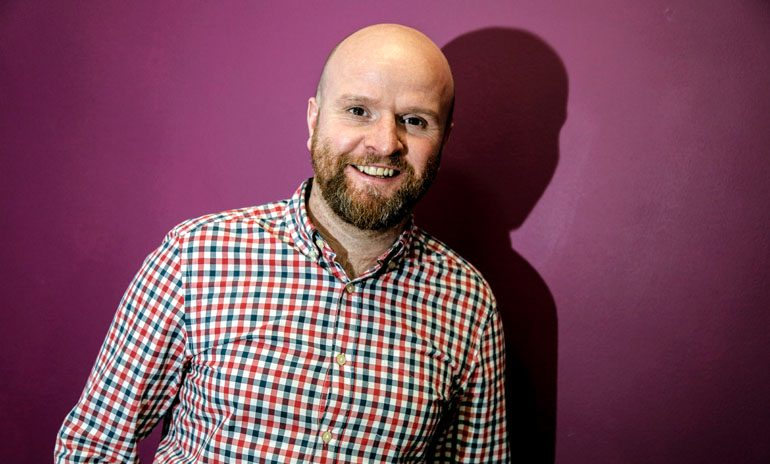Local businesses are being advised to pay great attention to the importance of strategy and planning, particularly in regards to website design and build projects.
The team at Thrive includes its long-standing, development-focused arm, headed by Senior Developer, Reza Snowdon, who has recently steered the company in the direction of app builds, including desktop software solutions and mobile apps.
But the team remains passionate about building responsive websites, with bespoke functionality and on-brand design, and they know through their many years of experience that two things are imperative to a successful, enjoyable development project.
Director Johnny Woods says: “When we have a client that comes to us with an excellent approach – which basically means a desire to be proactively involved in the project – we know the product we ultimately produce is going to be of high quality, and to a standard that delights.
“That’s all we hope to achieve with every single client and that generally is the case, but it’s all down to the client’s attitude, which is why we want to share some of our advice for anyone currently going through the development process.”
Thrive recommends that SMEs take Benjamin Franklin’s ‘fail to plan, prepare to fail’ advice to heart, as a plan is the most crucial element for ensuring development projects are produced on target, to requirement and within budget.
The digital growth agency offers a robust process for onboarding new clients, delivering scoping meetings and a solid proposal stage, but it asks clients to consider the following analogy before they embark on a development project.
Johnny explains: “You’re undertaking a house build… Would you just call a builder that you didn’t know and agree to their costs, timeline and ideals for design and materials? Would you be comfortable leaving it in their hands or would you aim to provide ideas on house type, size, materials, looks, plans, milestones, timescales, budget?
“A development project is precisely the same and any developer worth their salt thrives when they have a client that proactively provides ideas, branding guidelines, functionality preferences, photography and structured content.”
The experienced agency has also compiled a list of possible outcomes that most commonly come from a ‘failure to plan’ project:
1. Lack of open communication which, in a worst case scenario, can result in a relationship breakdown that can jeopardise the whole project.
2. Developers being forced to make guesses and estimations, as they attempt to ‘read your mind’ and make ‘best guess’ assumptions, resulting in a website structure, design or functionality you didn’t want or need.
3. Back-and-forth conversations about minor issues or trivialities that end up taking up an unnecessary amount of time, resulting in increased costs.
4. Reworking or revisiting previously agreed content causing frustration and risking missed deadlines.
5. ‘Scope Creep’, which is every developer’s nightmare and refers to additional or new work which appears ‘out of the blue’ and outside the original agreed proposal, resulting in missed deadlines and extra costs.
6. Confusion, frustration, difficult conversations and dissatisfaction, all of which are often the result of a poor – or lack of a – plan.
Thrive recommends that if any businesses are concerned about a current development project they are undergoing, at whatever stage it is, to speak to their developers and to maintain open, balanced lines of communication to best alleviate concerns and resolve any issues.
Visit Thrive’s blog for regular updates and insights from the marketing, web and design industry – thriveability.co.uk/blog








